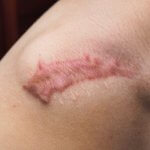Your baby’s umbilical cord blood is the richest known source of stem cells from the human body. Here we’ll take a look at stem cells in more detail to find out what they do, what they are and why they are so special.
Stem cells are the building blocks of life, in fact the very first cell created at conception is a stem cell and every cell created after that could, theoretically, be traced back to that single cell. As the cells continue to divide after conception the stem cells become more and more specialised to create every single organ, every single hair and every single cell of your baby.
There are many different kinds of stem cell and one of the most controversial kinds of stem cells is the embryonic stem cell. Stem cells are the master cells of the body, this means they can transform into specialised cell types as needed by your body. Embryonic stem cells are chosen for research by some scientists due to their ability to differentiate (become specialised cells); these cells come directly from an embryo. Embryonic stem cells are not found in umbilical cord blood, cord blood is a completely ethical source of stem cells.
One kind of stem cell found in umbilical cord tissue are Mesenchymal stem cells (MSCs), these stem cells hold great promise in the field of regenerative medicine. Regenerative medicine uses the body’s own cells to repair or replace tissues which are damaged or diseased. There are many regenerative therapies with many more therapies being researched.
Haematopoietic stem cells (HSCs) are used in transplant medicine for illnesses such as Sickle Cell Disease, Leukaemia, Lymphoma and Myeloma; HSCs are also found in cord blood.
The wonderful thing about your baby’s umbilical cord blood stem cells is that they are a 100% perfect match for your baby and should they ever need a stem cell therapy in the future, there is no danger of their body rejecting them. In addition to this, you baby’s cord blood stem cells have a greater chance of being matched to a blood relative should they every need them; siblings have a 25% of finding a stem cell match with their sibling’s cord blood.









